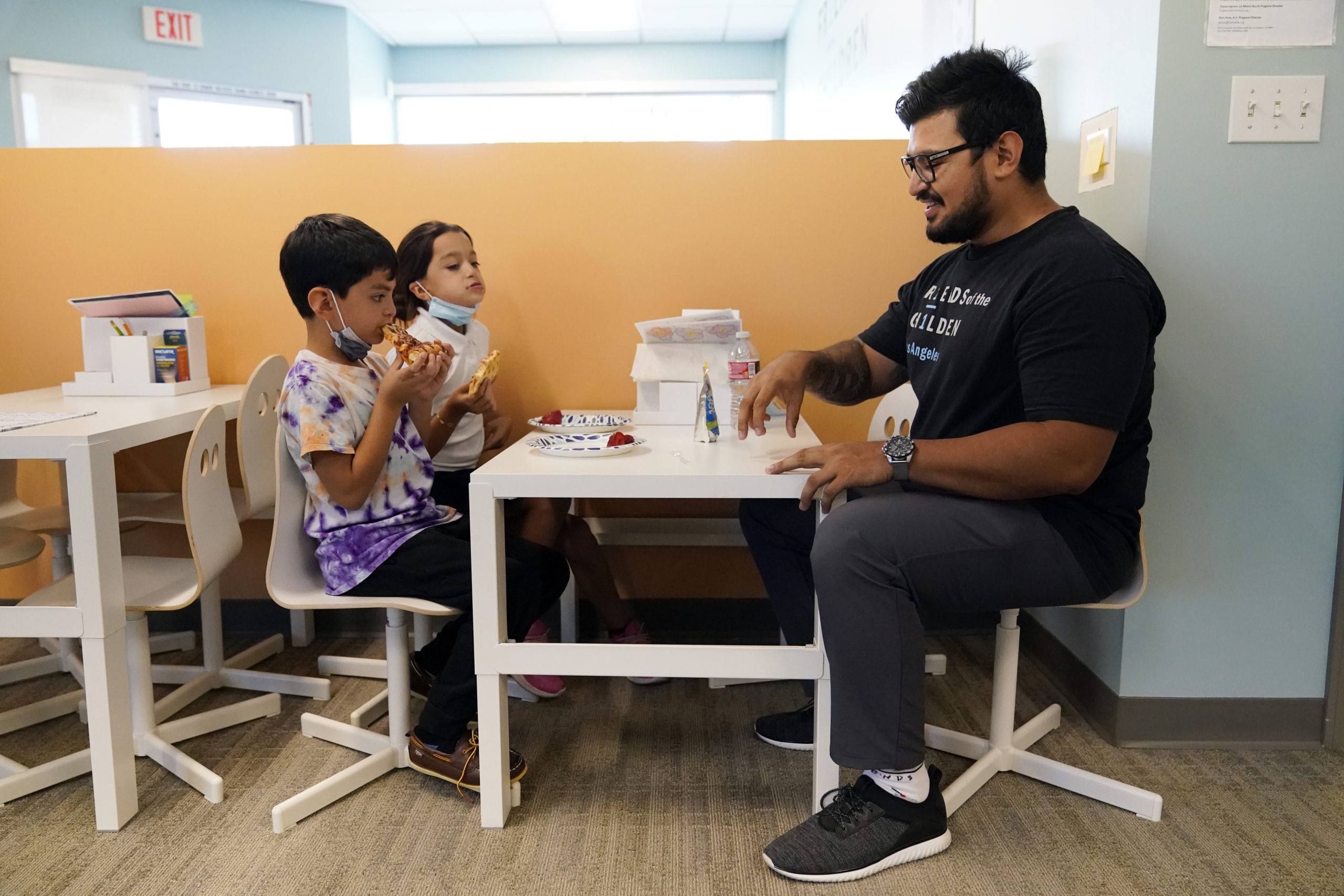 1
1 1
1
LANCASTER, Ca. (AP) — Billionaire philanthropist MacKenzie Scott donated $44 million to the Oregon-based mentoring organization, Friends of the Children, which supports children at risk of entering the welfare system by pairing them with a longtime mentor.
The unrestricted gift, announced Thursday, provides $15 million to the organization’s national headquarters and splits $29 million in direct donations to 12 of the organization’s chapters from Tampa Bay to Detroit to Los Angeles.
Terri Sorensen, the CEO of Friends of the Children, said Scott sent word through intermediaries about why she’d chosen her organization.
“She said that they were doing this because they really hoped more people would find out about Friends of the Children,” said Sorensen, adding that she worked with The Bridgespan Group as part of the vetting process for several months before the amount was finalized.
That reflects what Scott has often said about her donations, writing in a 2020 Medium post that she and her team rigorously study organizations, in part, “to pave the way for unsolicited and unexpected gifts given with full trust and no strings attached.”
“Because our research is data-driven and rigorous,” Scott wrote, “our giving process can be human and soft.”
Sorensen recalled the “surreal” moment in June when she learned of Scott’s gift. She was visiting the Pine Ridge Indian Reservation in South Dakota, where there was limited cell phone service, and had to drive around to get a signal to take the call.
“I was actually in a ditch when I got the word,” she said.
Scott’s donation nearly doubles the organization’s overall resources, since the national network’s budget for 2022 was $50 million. Founded in 1993, Friends of the Children pays a professional mentor to befriend and support children and their families for 12 years starting in kindergarten.
In the past eight years, the network expanded from having five chapters to 26, with the help of a $4 million grant in 2016 from the Corporation for National and Community Service, a U.S. government agency. That grant was meant to help the organization expand its program and study the impact it had on children living in poverty.
The chapters plan to use Scott’s donation to pay higher wages to mentors, who they call “friends,” and expand to serve more children, Sorensen said, though she emphasized that each chapter is run independently.
The national headquarters will add staff to increase the administrative support like grant writing and accounting they provide to chapters and establish an impact fund for chapters seeking grants.
The gift is the latest from Scott to be made public and extends the pattern of her giving to other organizations that provide mentorship and support to children like Junior Achievement USA, Big Brothers Big Sisters of America and Boys & Girls Clubs of America.
Like nearly all of her more than $12 billion in giving since 2019, Scott’s donation to Friends of the Children was unrestricted and Sorensen said they intend to spend the funds within five years. Scott’s large gifts have challenged other wealthy donors and foundations to assess their own giving strategies.
Scott and her husband, Dan Jewett, donate in relative secrecy. Giving as individuals and not through a foundation means their donations are known only when the recipients disclose them or through her occasional blog posts. She’s written previously that she doesn’t respond to press inquiries in an effort not to overshadow the work of the organizations to which she donates.
Los Angeles, which has one of the highest number of children in foster care than anywhere in the country, is one of the chapters of Friends of the Children that will receive the gifted funds. The organization has two locations there, including one that opened in 2019 in Antelope Valley, located about an hour north of the city. That office won funding from the county mental health department to divert children at risk of being separated from their parents or guardians from entering foster care.
“We’re getting reports from there, the parents and their caregivers, that not only do they have hopes and dreams for their children, but they have their own hopes and dreams and don’t feel so alone by having a friend by their side,” Sorensen said, referring to the mentor assigned to the family.
Their chapters now partner with a range of local organizations to identify children most at risk of being involved in the welfare system and to match them with a long term mentor.
“Perhaps the parents experienced foster care, didn’t graduate from high school, have been incarcerated. Let’s get to those families before they enter the system and keep them out,” Sorensen said. “So that’s really where we like to be on the side of prevention.”
___
Associated Press coverage of philanthropy and nonprofits receives support through the AP’s collaboration with The Conversation US, with funding from Lilly Endowment Inc. The AP is solely responsible for this content. For all of AP’s philanthropy coverage, visit https://apnews.com/hub/philanthropy.